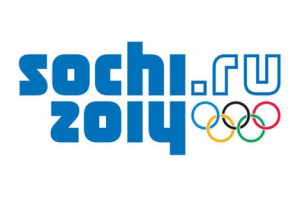Boycott Russian Olympics? Not So Fast.

The 2014 Winter Olympics will be held in Russia, but the country’s anti-gay laws create an ethical and possibly dangerous problem for participating athletes. But Jason Torpy argues why the U.S. should not boycott the Olympics.
Russia has banned being gay, and now vigilantes feel justified in torturing gay youth. The policy not only bans “gay acts” but any public support of homosexual activities. This is an outrageous application of thought-police made even worse by virtue of next year’s Winter Olympics. They have vacillated on whether they will jail gay athletes who attend.
Russia is not a theocracy. It is true that the Russian Orthodox Church has come out of hibernation from the Soviet era and re-asserted itself on Russian politics. Their anti-gay stance, combined with “skinhead” influences, is winning the day in what should be a secular, modern society.
Humanist Stephen Fry and many others have suggested a boycott of the Olympics. Figure skater Johnny Weir and others have lamented the punishment of athletes who would be robbed of a lifetime goal of competing in the Olympics. Other anti-boycott arguments recognize that the Olympics are intended to transcend politics in the spirit of true human cooperation. Despite our differences, humanists should be able to come together for friendly competition, whatever the venue.
It seems to me that the new Russian law is very stupid, very hateful, and very changeable. In addition, there is a real danger of athletes and tourists being arrested or beaten at the Olympics. There are already appeals to the State Department to say how or if they will defend U.S. citizens from being prosecuted under Russian laws.
While a total boycott seems like the obvious choice, it is hard to get past the real damage done to young athletes worldwide as well as the real damage done to the “spirit” of the Olympics. In addition, having smaller-scale economic boycott of refusing to watch, buy products, or travel would still impact athletes while having little or no impact on gay rights.
While I won’t list all issues in the past, there was no boycott of the 2008 Beijing Olympics despite human rights abuses and the Tibet question. Citizens of Georgia called for a boycott of the same Russian games, but for a different reason (South Ossetia conflict).
It seems very dangerous to let the Olympics be used in politics. There is global visibility and international representation, but that will be diluted and lost if the spirit of cooperation is replaced with a platform for political struggle, no matter how noble. Russia’s anti-gay laws are, as I said, hateful and dangerous. The anti-gay laws and brutality against LGBT people throughout the Middle East, Uganda, in the Catholic Church, and here in the U.S. are deplorable. These are problems now and the Olympics need not be the focus of efforts. Let’s work hard against anti-gay bigotry at home and abroad, but let’s keep the Olympics focused on the universal human connection of athletic competition.
Still want a boycott? You better hurry. The World Athletic Championships are being held in Moscow. Right now.
Note: After this article was written, George Takei called for a boycott and potential move to Vancouver where facilities are still present and potentially available. This is a noble idea, but I think the logistics are more difficult than one might imagine. And it is almost certain that many countries would refuse to go to Vancouver in solidarity with Russia or even its anti-gay policies. His letter should be taken seriously, especially by broadcasters and corporate sponsors, but I still prefer the Olympics as an important time for cooperation where even abuses even as great as these are to be set aside for just a few weeks every few years.
Jason Torpy is president of the Military Association of Atheists and Freethinkers and treasurer of the American Humanist Association.
